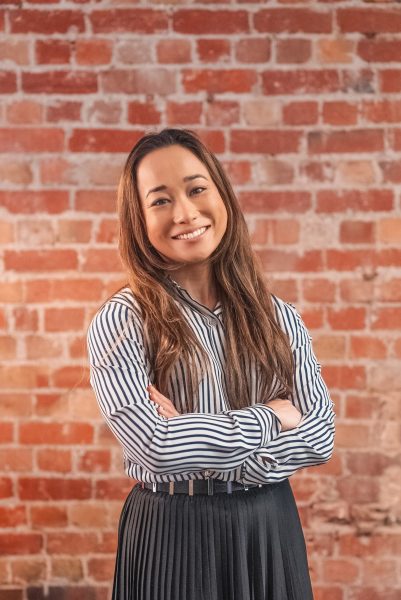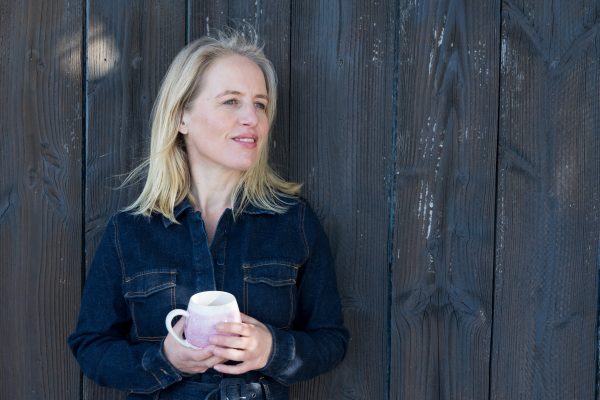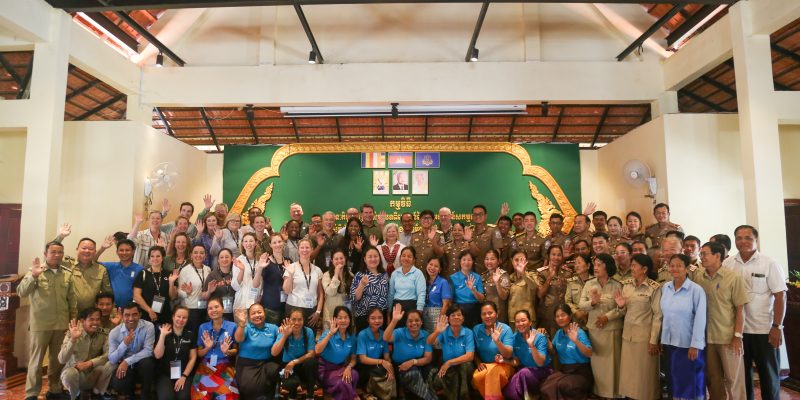
We are celebrating day three of our International Women’s Day campaign, and we are excited to feature Misaki Nakamura, WA Regional Manager alongside Carli Leimbach, Leadership Program Director, Women’s Environmental Leadership Australia (WELA).
While Misaki works on resolving complex major projects and building resilience in the water industry, Carli advocates for environmental conservation and justice by strengthening women’s leadership.
Both Misaki and Carli believe in building bold mentorship and leadership pathways not only to equip the next generation of women with the right tools but also to inspire society’s betterment where communities and the planet can flourish.
 Misaki Nakamura, WA Regional Manager
Misaki Nakamura, WA Regional Manager
What does “March Forward: For ALL Women and Girls” mean to you?
It represents a commitment to ensuring that progress towards gender equality is inclusive, intentional, and unwavering. It’s about creating a world where women and girls—regardless of background, culture, or circumstances—have the same rights, power, and opportunities as their male counterparts. This means breaking down barriers, challenging outdated norms, and fostering an environment where every woman and girl is seen, heard, and valued.
Two steps forward and one step back is still one step forward in this journey. I think if we continue to ‘march’ towards commitment to ensure inclusivity, though there may be roadblocks along the way, we still make a sustainable impact.
How do you think we need to march forward to unlock equal rights, power and opportunities for all and a feminist future where no one is left behind
To truly march forward, we need structural change and cultural shifts that remove systemic barriers to gender equality. This requires policy and leadership commitments, breaking unconscious bias, creating flexibility without penalty and men as allies
How can we empower the next generation to be catalysts for lasting change?
To empower the next generation to be the catalyst for lasting change, we need education, mentorship and visibility. Investing in STEM and leadership programs, creating mentorship opportunities to share experiences. Equip the next generation with the tools to advocate for themselves.
In our industry, how do we close the gap to achieve gender equality?
Be deliberate in retaining women by helping develop leadership pathways and ensuring fair career progression opportunities.
Visibility matters. When women see others leading in engineering, operations, and management, it creates a pathway for more to follow.
What are some of your own experiences in the industry?
One of the biggest challenges I’ve faced is being the only woman in a room—often in high-stakes meetings where it can feel intimidating to speak up. There have been moments where I questioned whether my perspective would be valued or if I needed to work twice as hard to be taken seriously. However, through these experiences, I’ve learned to navigate these situations with confidence and build resilience. Over time, I’ve developed the ability to back myself, challenge assumptions, and find my voice in these environments.
At Sequana, I’ve found a workplace that actively supports my personal and professional growth. One of the biggest differences is the accessibility to leaders within the business management team. Having direct engagement with senior leaders has given me greater confidence in expressing my ideas and helped remove the intimidation factor that can come with working in traditionally male-dominated spaces. This level of support and mentorship has made a tangible impact—not just in my career progression but also in shaping my approach to leadership and advocacy for other women in the industry. By fostering an inclusive culture and ensuring women have a seat at the table, Sequana is actively helping to close any inequalities in our industry.
 Carli Leimbach, Leadership Program Director, Women’s Environmental Leadership Australia (WELA)
Carli Leimbach, Leadership Program Director, Women’s Environmental Leadership Australia (WELA)
What does “March Forward: For ALL Women and Girls” mean to you? How do you think we need to march forward to unlock equal rights, power and opportunities for all and a feminist future where no one is left behind?
For too long, leadership has been taught and practiced as a power play – rooted in dominance, control and individual merit. But real change has never been achieved alone.
Throughout my career in the arts, film/TV, theatre, social innovation, and environmental activism, I’ve seen the power of collective effort. Leadership should be about collaboration, adaptability and creativity – especially in a world that is increasingly complex and fast-paced. We need to move beyond outdated models of leadership that place unrealistic pressure on individuals to always have the answers. Instead, we must champion diverse, shared leadership – collaborating, innovating, continuously learning and lifting each other up to lead in bold new ways.
How can we empower the next generation to be catalysts for lasting change?
We need to reframe failure – not as something to be feared, but as a natural part of learning and growth. Let’s be honest – no one wants to fail. Instead of focusing on failure, at WELA we create “support scaffolding” that makes it safe to experiment, take risks and step into leadership with confidence.
As a women-centered coach, I encourage women to explore their learning edge – stretching beyond their comfort zones without pushing into distress. When we create spaces where women and girls feel safe to lead, take up space, and test their ideas, we can unlock their full potential.
Women achieve so much more when they know they have a strong community behind them – when they know someone has their back. Time and again, I’ve seen the power of women amplifying each other – when their brilliance is reflected to them, when they are truly seen and supported, anything is possible.
In our industry, how do we close the gap to achieve gender equality?
At WELA, we believe in a collective approach and the power of relational, collaborative and networked leadership. We know that creating lasting systems change requires working together – not in competition, but in sharing knowledge and building strong, values-aligned connections and partnerships.
Becoming a WELA partner isn’t just about financial support – it’s about joining a movement for collective impact. Our partnerships are built on a shared purpose, whether it’s contributing expertise, amplifying voices, co-designing initiatives or strengthening networks for women and gender-diverse people working for environmental and climate action.
Together, we create the conditions for transformative leadership, ensuring that women and gender-diverse changemakers have the support and community they need to drive environmental and social justice across Australia.
What are some of your own experiences in the industry?
WELA is a feminist organisation that embraces an ecofeminist, intersectional approach to leadership. For me, this means continuously challenging the status quo – including my own biases and privilege as a cis woman and a white woman. It’s not always easy. It requires courageous conversations, self-reflection, and ongoing personal development to acknowledge my limitations and take responsibility for my impact.
At WELA, we start each leadership session with a practice called “share a brag” – a safe space where women learn to flex their leadership muscle, take up space, and become comfortable being seen and celebrated. It’s a powerful tool for dismantling the cultural conditioning that teaches women to shrink themselves.
I believe we have a unique opportunity in Australia and across the Asia Pacific to model a new kind of leadership – one that is bold, collaborative and deeply committed to environmental justice. By amplifying each other, we can challenge patriarchal systems, celebrate women’s achievements and build a future where leadership is not about competition, but about collective strength in driving climate and environmental action.
Learn more about Women’s Environmental Leadership Australia’s work here.


